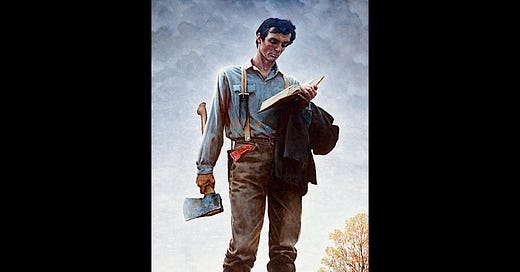12 Practical Reasons for Leaders to Read
“What does it mean to believe something? Is it possible for a person to profess an idea sincerely, yet discover that he never really believed it? If a man’s actions contradict his beliefs, is he necessarily a hypocrite, or might both the actions and the beliefs be sincere? Which, in that case, does he really believe? How does self-deception work? If a man understands an idea to be false, how can he arrange to believe it? Can he will himself to believe what he doubts? These and many questions haunt the Russian tradition. Explored by the great thinkers and novelists, they have led to insights about the human condition that are one of Russian literature’s great gifts to the world.” Gary Paul Morson in the essay, Dostoevsky’s Credo
Why reading history and classic literature is essential for leadership development:
It helps you develop a properly informed worldview that shapes all your thinking.
It builds your understanding of human nature, potential, and perversity.
It enables you to learn the language of leadership and how to inspire people.
It expands your general knowledge and self-confidence in interaction with others.
It develops your capacity for focus and concentration in everything you do.
It is quite simply the most practical way to develop judgment, creativity, and vision.
It promotes your understanding of the complexity of people and the world.
It explodes modern myths like inevitable progress, easy answers, and quick fix.
It helps you to know what to think, feel, say, and do in all situations.
It gives you a sense of history and the much-needed socio-political nous.
It takes you out of the narrow confines of the here and now, broadening your mind.
It immunises you against ideological thinking and media deceit.
Twelve books to read in a year:
Republic by Plato
To Kill a Mockingbird by Harper Lee
Heart of Darkness by Joseph Conrad
Macbeth by Shakespeare
Crime and Punishment by Dostoevsky
Antigone by Sophocles
Pride and Prejudice by Jane Austen
Anna Karenina by Tolstoy
Bleak House by Charles Dickens
Man’s Search for Meaning by Viktor Frankl
Middlemarch by George Eliot
1984 by George Orwell
Alexander, Marcus Aurelius, Alfred the Great, Lincoln, Frederick Douglass, and Churchill, all knew the secret. Now you do too.





